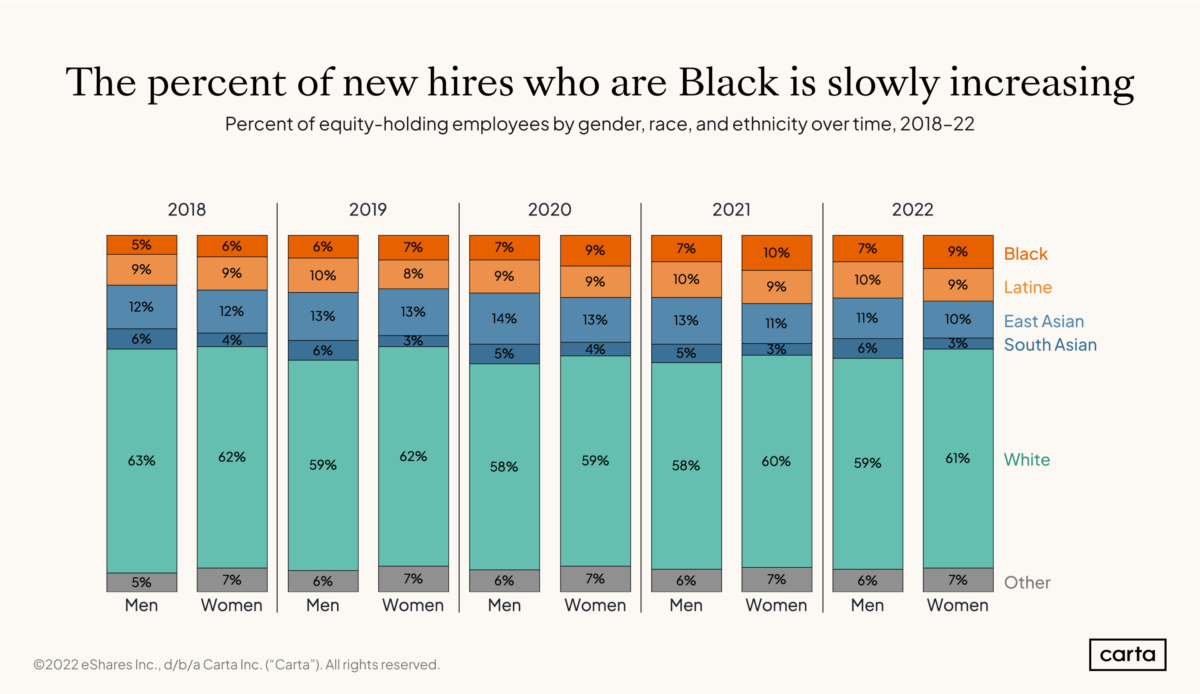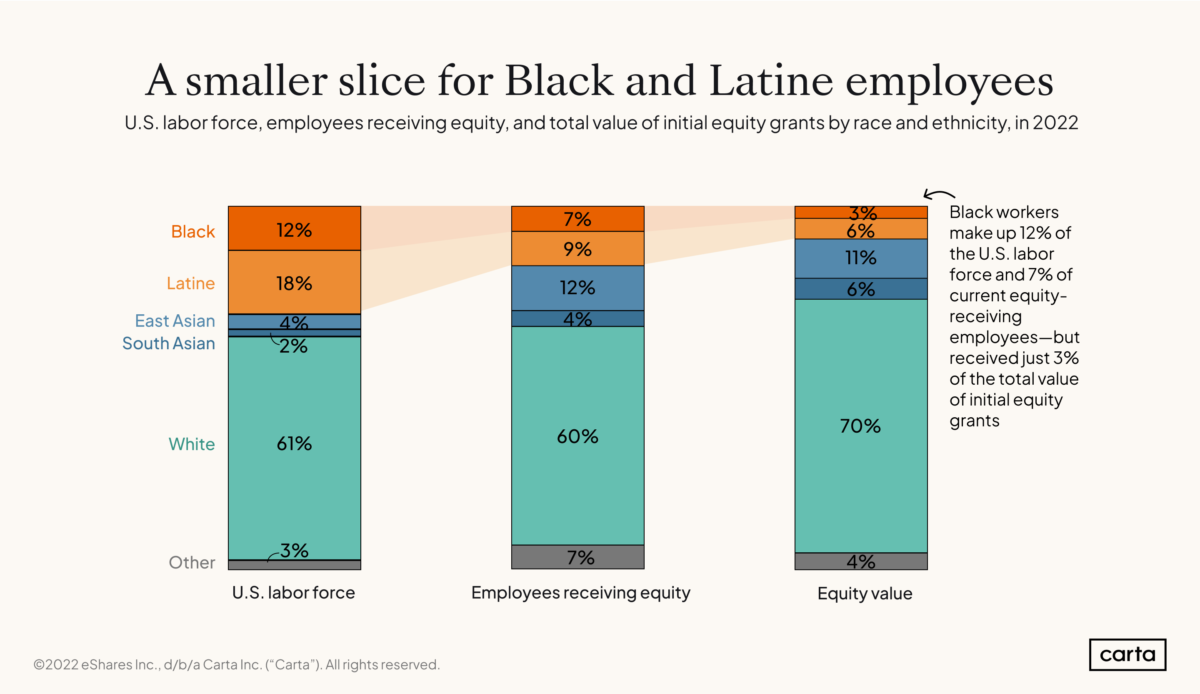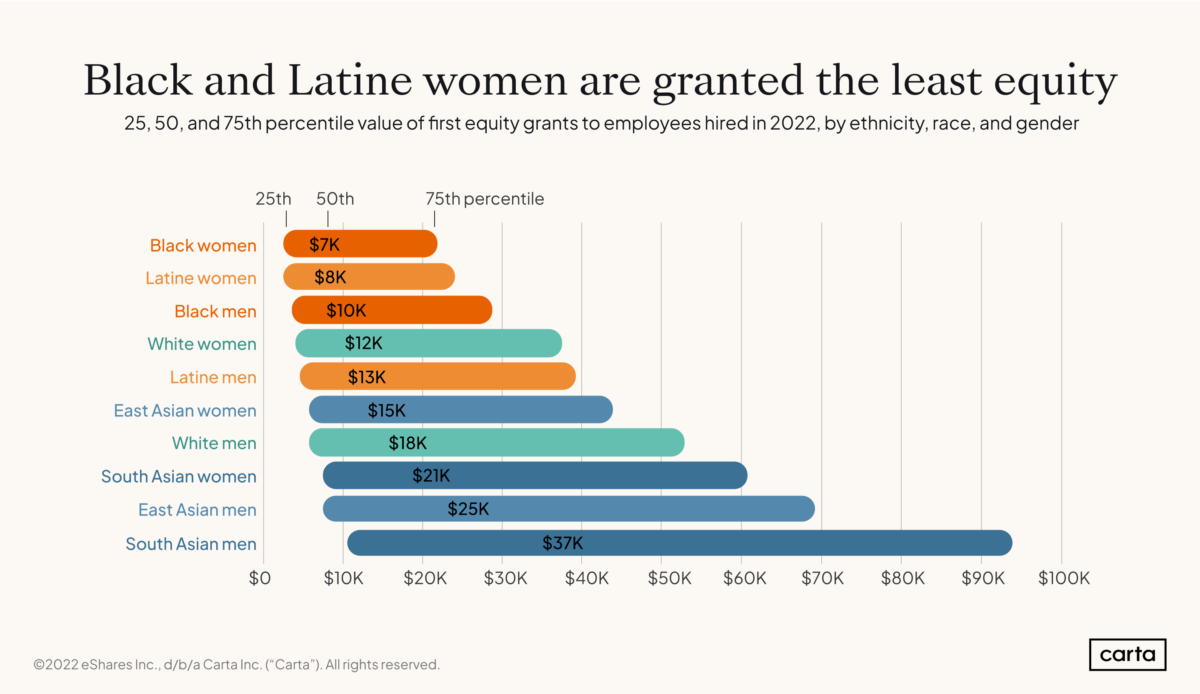Grandma and ‘nem always told us, “there’s nothing new under the sun.” When it comes to racial biases and prejudices in the workforce, there’s a draining repetition of occurrences that never surprises Black and Brown folk.
This phenomenon around racial biases against people of color is pervasive in the world, but it rears its ugly head in the job space quite frequently. From wage and payment gaps to a lack of professional development, Black and Brown people consistently face challenges that show great inequity in business and entrepreneurship.
Carta — an ownership and equity management platform — releases a yearly report that explores the demographics and trends that highlight these issues, with some focus points on the ecosystem of venture capital and startup organizations.
This year’s report from Carta explored some new assessment points like expanded geographic data, the effects of parenthood related to gender, and investor-specific demographics.
The Same Ole Story
Most interesting and consistent in reports like these is the data surrounding hiring metrics and how it affects historically marginalized communities.
According to the report, the percentage of Black people hired only increased from six percent to eight percent between 2018 and 2022. Carta also noted that the number of women hired was “slightly” higher than men. And while all growth is worth celebrating, it does call into question some of the other data points that show the success of Black people and women and why that success is not translating to the job market.

Something Isn't Adding Up
Pew Research found that over a third of Black Americans have completed some level of college education and that roughly a quarter of Black adults have a bachelor’s degree or higher. In a separate report, Pew Research also found that “there are more women ages 25 and older with a bachelor’s degree or more education in the labor force than before the pandemic: 31.3 million in the second quarter of 2022, compared with 29.1 million in the same quarter of 2019.”
And if education is taken out of the picture of the workforce, companies have expanded their offerings by alleviating specific job requirements. Specifically, in big tech, groups like Google, Apple, and IBM have all amended their eligibility criteria for particular roles.
All of these data points and shifts in the job market should lead to greater diversity — especially in the world of startups, where more liberal and progressive policy and action is typically expected and implemented.
However, the Carta report still shows that the number of new white hires over the years has remained constant. Additionally, the platform noted that 61 percent of the labor force is white.
How Much Do They Own?
These numbers are even more alarming regarding equity and ownership with companies.


Although Black and Brown people make up 30 percent of the United States workforce, only 16 percent of people in those groups receive an equity stake in their company.
Where Do We Go From Here?
With ownership and job growth numbers barely increasing among people of color and women mainly, what can organizations do to promote more equitable solutions?
Reports like the one Carta published provide insightful data points, but industries need to answer questions as to why these trends continue to exist.

















